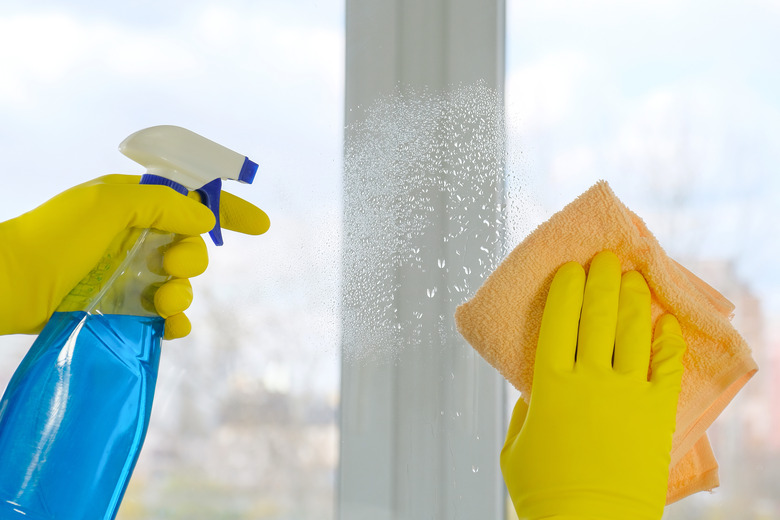The Pros And Cons Of Ammonia As A Cleaning Agent
We may receive a commission on purchases made from links.
For most people, cleaning is something they have to do, not something they want to do. Finding the right products to make cleaning easier can take a little of the frustration out of cleaning. Ammonia is used in a variety of cleaning products, and it's available on its own as household ammonia. Before cleaning with ammonia, be sure you understand the pros and cons.
What Is Ammonia?
What Is Ammonia?
Ammonia occurs naturally as a colorless gas in nature and your body. You can find it in nature in the air, water, and soil, and it has a distinct smell. Ammonia is commonly used in fertilizer as well as industrial and manufacturing applications. In the form of ammonium hydroxide, ammonia is used in many cleaning products, especially glass cleaners, or as household ammonia by itself.
Pro: Streak-Free Finish
Pro: Streak-Free Finish
Ammonia evaporates quickly once you apply it to a surface. For this reason, it's often used in glass cleaning products. The quick evaporation reduces the chances of streaks forming on the glass, giving you a crisp, clear finish.
Pro: Tough on Difficult Stains
Pro: Tough on Difficult Stains
Cleaning with ammonia can help you tackle tough stains or buildup throughout your home. Some uses for ammonia around the house include cleaning soot off fireplace doors, bringing shine back to tile, killing mildew, removing stains from carpet, and cleaning dirty oven racks. Ammonia can also be effective on wine and cooking grease stains. It can be a suitable option if you've tried other cleaners that didn't remove the gunk.
Con: Possible Health Effects
Con: Possible Health Effects
Ammonia is a toxic chemical that can cause serious health effects, including death. If you ingest ammonia or a cleaner containing ammonia, you might experience burning and pain internally. The chemical can cause burns or irritation if it comes into contact with your skin or eyes.
Fumes can also be an issue with ammonia. Breathing it in can cause irritation in your lungs, nose, and throat. If you inhale enough ammonia, it can cause coughing, shortness of breath, pulmonary edema, and increased pulse rate and blood pressure. If the exposure continues at high levels, you could die. Ventilating the area well when cleaning with ammonia can reduce the risk of irritation and other issues from the fumes.
Con: Dangerous With Other Products
Con: Dangerous With Other Products
Another potential drawback of using ammonia is its potential reactions with other cleaning products. In particular, mixing ammonia and bleach is very dangerous and could cause death. When you combine them, it creates chloramine gas, which is toxic and can kill you. It can cause a variety of other reactions, including coughing, shortness of breath, pneumonia, chest pain, nausea, and irritation.
Ammonia can be in many cleaning products, so you might create the gas without realizing it if you use ammonia-containing cleaners with bleach. You can also get a dangerous reaction if you use one product after the other on the same surface. Using gentler products and skipping ammonia and bleach completely can prevent this very serious reaction.
